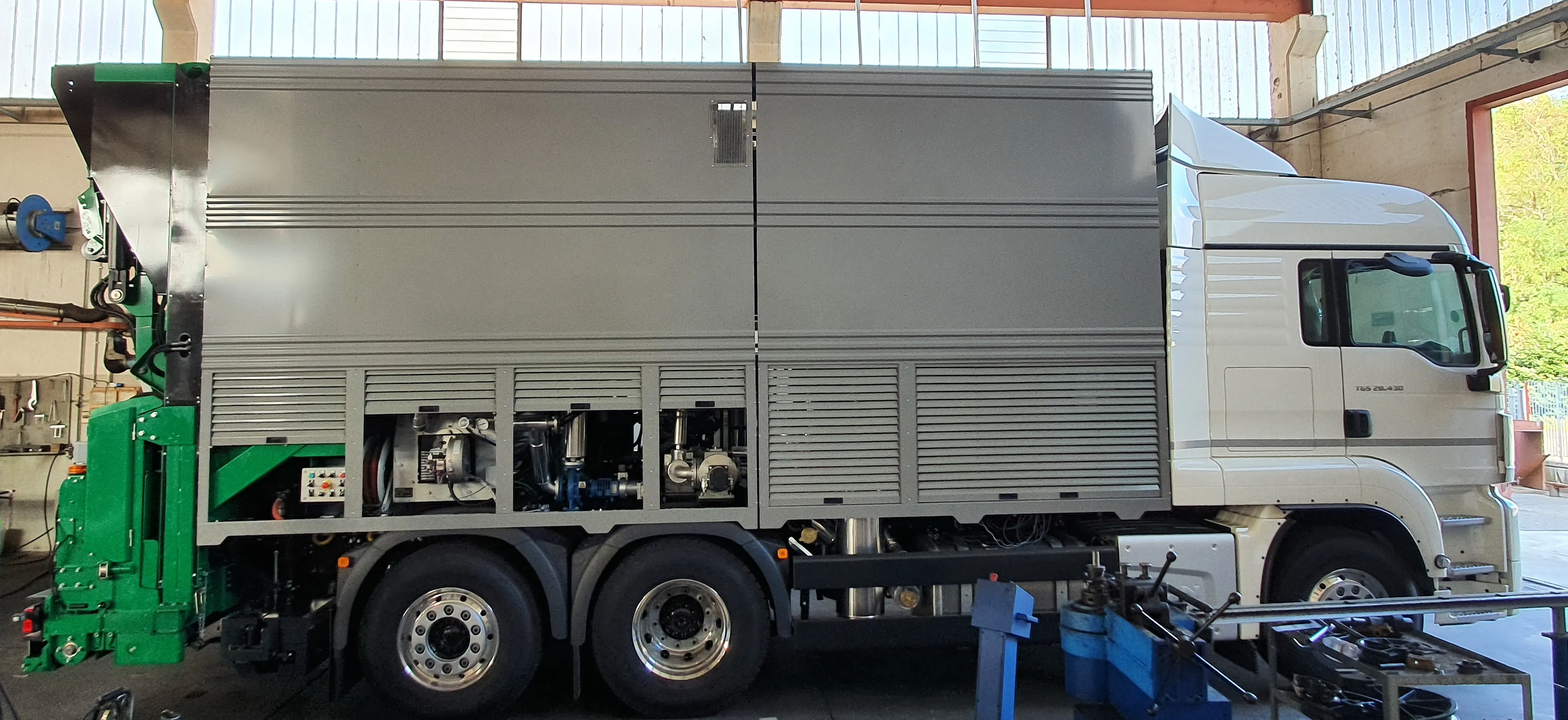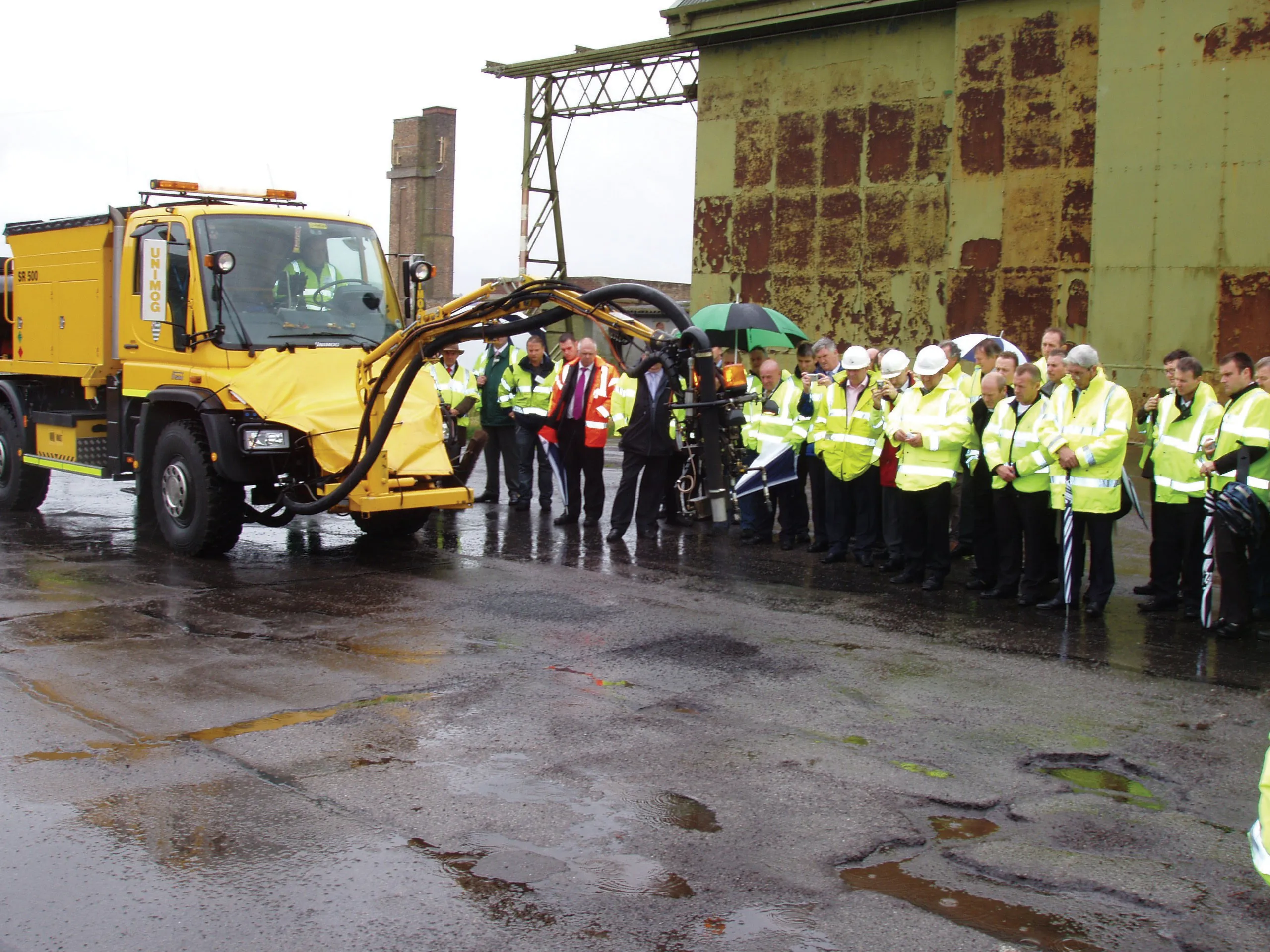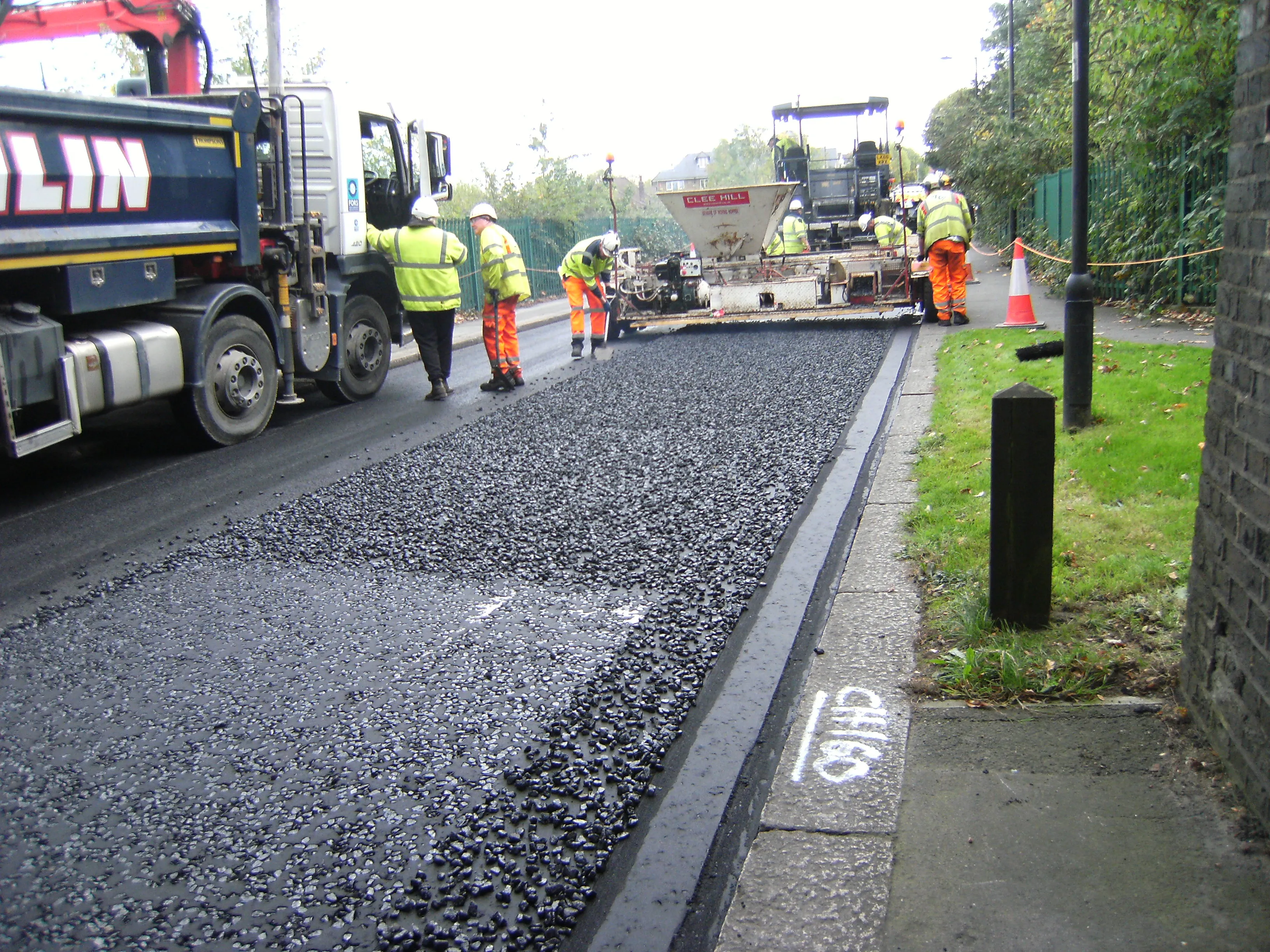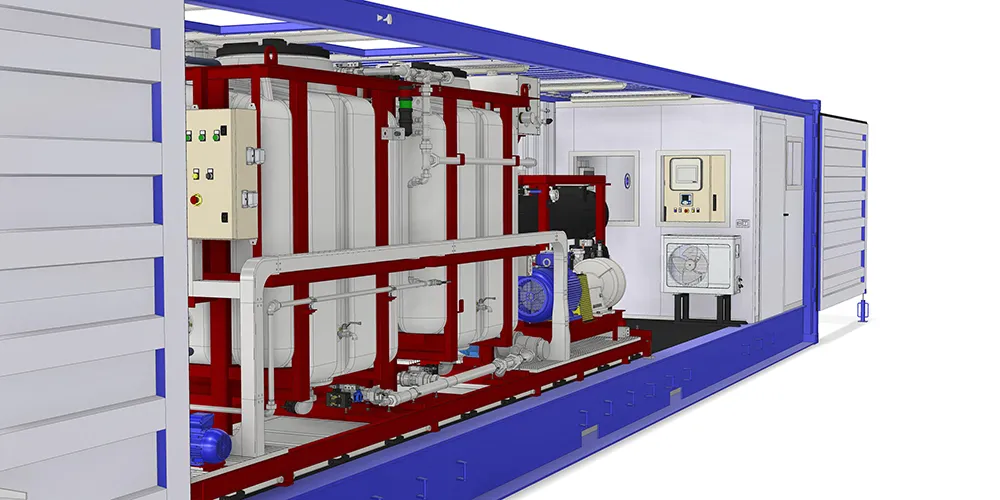
Italian manufacturer Massenza, which produces bitumen emulsion and concrete equipment for road construction markets around the world, has been hard at work over the past two years developing two new machines.
The first is a more compact version of its successful Combimas 10, the second is a fully electric spraying tank, which Massenza believes could be the first of its kind in the world.
Like the Combimas 10, the Combimas 7000-4 combines a chip spreader and a spraying tank on one vehicle. This makes the chip sealing process more efficient; just one unit is needed to apply the binder, followed by the aggregate chips. This also means there are fewer vehicle movements – which is good for the environment and causes less disruption to road users.
Chip seal coats are applied to roads to help prolong their lives. If fine cracks in the asphalt are present, they can prevent moisture getting into the pavement and enlarging the cracks. Using the Combimas system improves the quality and durability of the chip seal surfacing as there is no time lag between the application of binder and chips, ensuring the aggregate bonds properly with the still-sticky binder.
Whereas the Combimas 10 requires a four-axle truck to take the weight of its 10m3 aggregate hopper and 10,000-litre bitumen tank, Massenza has developed the Combimas 7000-4 to fit onto a three-axle truck. It has a smaller capacity of 4m3 for aggregate and 7,000 litres for bituminous material.
Because the unit is smaller with better manoeuvrability, it can be used in a wider range of locations, says Massenza. It will also cost less than its larger sister which the firm hopes will encourage more contractors to buy it.
The very first Combimas 7000-4 is currently being put through its paces in Italy. “The current machine is a prototype. We want to test it with customers in our home market first,” said Massenza director Diego Massenza. “The next step will be to launch it into the European markets.”
The machine can be used with either bitumen emulsion or Polymer Modified Bitumen (PMB). Because PMB has to be kept at an elevated temperature of up to 180 degrees C, Massenza had to obtain ADR (Accord Dangereuses Route) approval, which covers the transportation of dangerous goods, from the Department of Transport in Italy.
Massenza is also one year into a programme to develop an electric spraying tank. This work came as a result of demand from the market. “We carried out a survey of our Italian customers. They told us that when they submit tenders, if they can show that they have some fully electric machines, they get additional points from the authority,” says Massenza.“This is happening in other parts of the world too.”
Electric machinery has several benefits, particularly in built-up urban areas. Polluting diesel is removed, improving air quality and lowering the risk of associated health issues. Noise pollution is vastly reduced, allowing jobs to be carried out overnight if needed. And as countries decarbonise their electricity supplies, more widespread use of electric equipment will help governments meet their carbon emission commitments. “We are seeing more and more demand for ‘green’ technology,” says Massenza.
There have been a lot of technical challenges along the way, says Massenza.
Understanding the power demands of the machine and how to provide them by battery has been one of the biggest ones. “When the machine stops on the jobsite or highway, there is no power source available,” explains Massenza. “We need to design the system so that the temperature of the emulsion can be quickly raised in the morning – after falling overnight – enabling staff to start the job quickly.”
There were also questions about how to manage heating the pipes, valves and spray bar. “We had to decide whether to heat them electrically or whether to use an indirect heating system with oil.”
Massenza is currently working on a prototype of the electric spraying tank which it aims to have ready by Summer this year. Once that has been proved effective, Massenza believes that there will be demand in several European countries.
In the future, Massenza will consider whether to convert other machines in its range to electric power too, says Massenza. “Before we do that, we need to understand whether it makes sense or not for our customers and their markets.”
Massenza’s wide range of road repair equipment has included products from Strassmayr since the company was taken over by Massenza in early 2017.
Also in 2017, Massenza redesigned its polymer modified bitumen (PMB) mill to deliver improved efficiencies of up to 40%.









